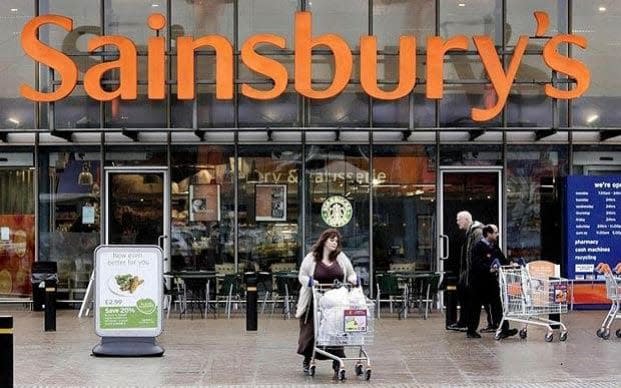Sainsbury's cost cuts threaten 1,000 jobs

Sainsbury’s is taking the axe to more than 1,000 jobs at its head office as part of a giant £500m cost-cutting drive.
It is understood that a team of top consultants from McKinsey have been parachuted into the supermarket’s headquarters to draw up a staff reduction plan.
Sainsbury’s employs 3,000 staff outside of its stores, including at its Holborn base in London. It also has a separate human resources centre in Manchester, an IT team in Walsgrave, Coventry, and a banking division in Edinburgh. The exact number of job losses is expected to be announced next month.
It is the latest in a series of major shake-ups at the big supermarkets as they grapple with far-reaching changes in how Britain buys its food.
In March, Sainsbury’s announced it was slashing 400 jobs, with a further 4,000 employees facing major changes to their working hours, as part of a shake-up of night shift work at 140 stores.
The company said the cuts were necessary to avoid having to raise prices, which had fallen in its core grocery business following a slump in the pound.
Two years ago, 800 store staff lost their jobs as part of a three-year plan to slash costs by £500m. Then, last November Sainsbury’s announced a new £500m three-year, cost-saving target, just months after closing its £1.4bn takeover of Argos.
It is a pattern that is being repeated at the supermarket’s main rivals. The established chains have been unable to stem the loss of customers to convenience stores, discounters and online rivals.
The company said the cuts were necessary to avoid having to raise prices, which had fallen in its core grocery business following a slump in the pound.
They have responded by slashing prices and improving the quality of their products but, to offset the increased outlay, have scaled back their operations in an effort to become leaner and more efficient.
Since taking charge of Tesco in 2014, Mr Lewis has more than lived up to his nickname “Drastic Dave”, which he was given at Unilever because of a willingness to dramatically rein in overheads. In his first year, Mr Lewis made nearly 10,000 employees redundant.
Five thousand head office staff and UK store managers were let go, as well as more than 4,000 roles overseas and at the chain’s banking arm. In 2015, a further 2,500 positions were axed with the closure of nearly 50 underperforming stores.
Then, in April this year, a reduction in shelf-stacking night shifts in some of its biggest supermarkets put a further 3,000 posts at risk. The swingeing cuts are part of a turnaround plan in which Mr Lewis has pledged to save £1.5bn of costs.
Clive Black, analyst at Shore Capital, said that Sainsbury’s plans were “part of a structural shift happening across the industry to reduce operating costs to reflect the changes across the industry”.
He added: “Most of these supermarkets have had stagnating operations for some time that lacked the entrepreneurial spirit to make the workforce more efficient.” Senior sources said that Sainsbury’s was focused on reductions within its HR, and learning and development teams.
The supermarket, which employs 51,000 full-time staff and 130,000 part-time workers, spent £2.5bn on wages last year and a further £267m on social security and pension costs.
“We do not comment on speculation and would always make any announcement around jobs to our colleagues first,” a Sainsbury’s spokesman said.

 Yahoo Finance
Yahoo Finance 